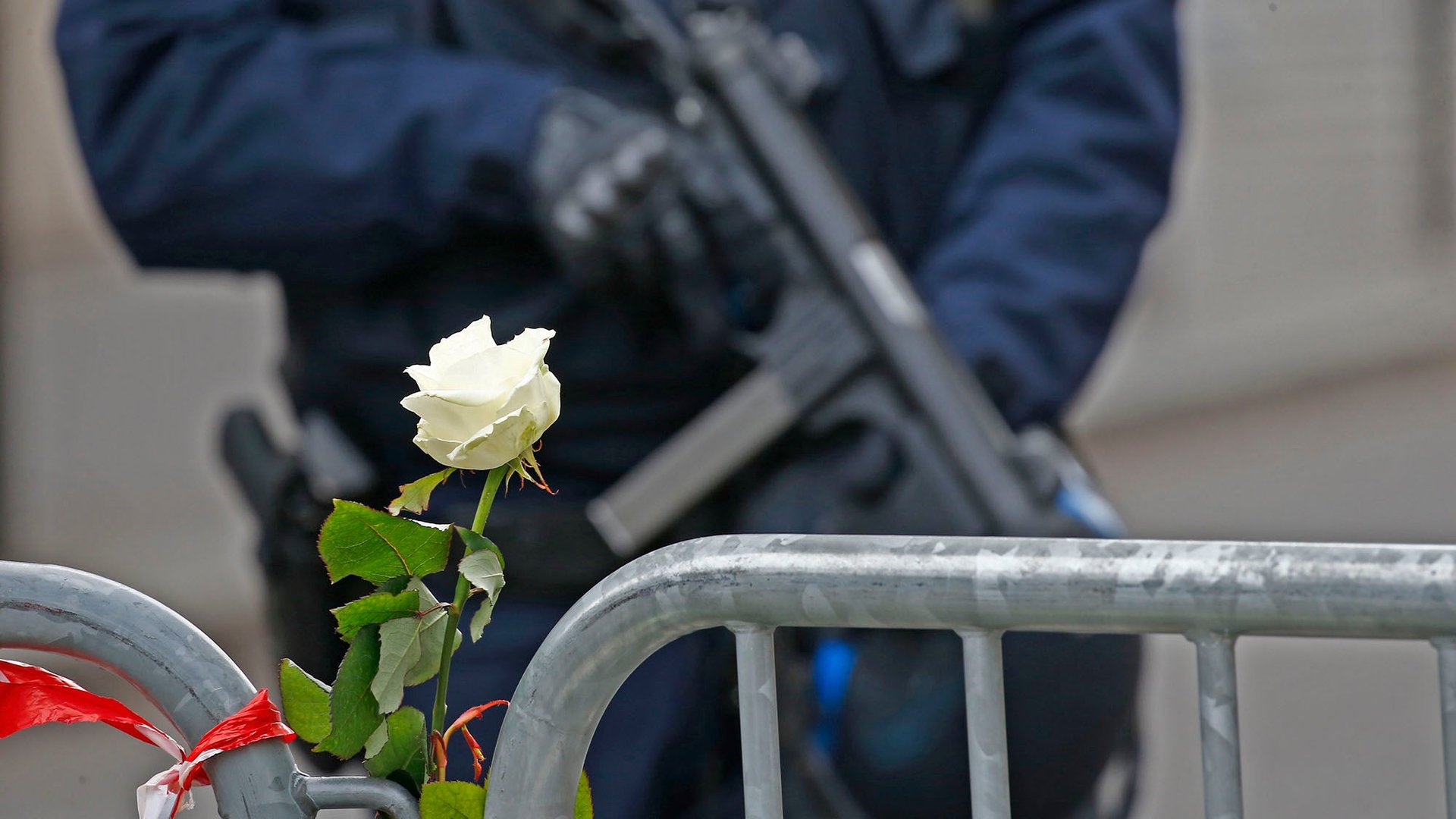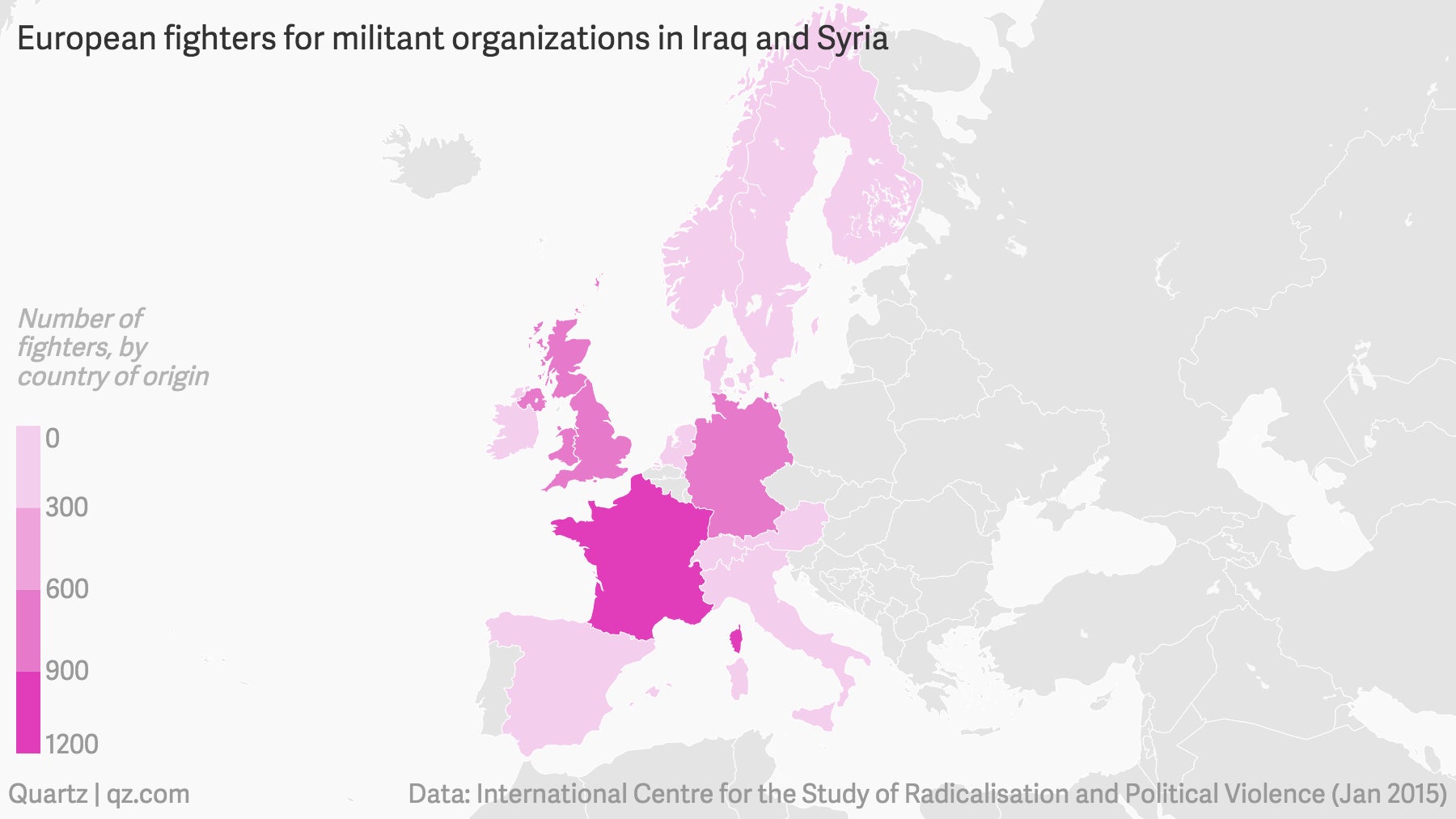“Complicity from the inside”: France’s biggest worry after the attacks in Paris
It was one of the darkest nights in La Ville Lumière—the city of lights. An orchestrated terrorist attack killed some 128 people and injured more than 300 in several locations across Paris on the night of Nov. 13.


It was one of the darkest nights in La Ville Lumière—the city of lights. An orchestrated terrorist attack killed some 128 people and injured more than 300 in several locations across Paris on the night of Nov. 13.
Terror group ISIL has claimed responsibility, and French president François Hollande also attributed the attacks to the group, calling it an “act of war.” Hollande said the attacks were “prepared, organized, and planned from abroad, with complicity from the inside.”
The prospect of homegrown help in carrying out the attacks is why security experts warn that the kind of violence Paris saw last night will be difficult to stop. Courting followers in the West is one of the aims of ISIL’s formidable propaganda machine. And indeed, the group has had success attracting European recruits to their ranks, particularly from France. The return of these radicals back home after indoctrination in Syria is a nightmare scenario for the security services.
Estimates published in January by the International Centre for the Study of Radicalisation and Political Violence put the number of people from France who have gone to fight for ISIL and like-minded militant groups in Iraq and Syria at 1,200, out of around 4,000 from western Europe. (Another estimate published in June put the ranks of French fighters at 1,500.)

European intelligence services are aware of the threat of internal terror networks gaining strength. On Thursday (Nov. 12), more than 15 people were arrested in four countries—Finland, Italy, Norway, and the UK—with alleged connections to Rawti Shax, an organization accused of recruiting Europeans to travel to Syria and Iraq to fight with ISIL.
The best way to guard against the burgeoning threat of local terror cells is better intelligence at home and abroad. France already has more than 5,000 individuals on their terrorism watchlist. An armed gunman caught on a train between Paris and Brussels before he could fire on fellow passengers was among them.
France has one of the largest Muslim populations in western Europe. Many disillusioned young men among them live in bleak outer-city estates near Paris with chronically high unemployment and little integration with mainstream French society. These people are prime targets for jihadist recruiters, as shown by the worryingly high flow of indoctrinated locals between France and ISIL strongholds.